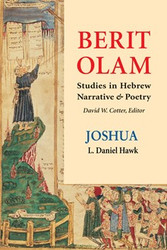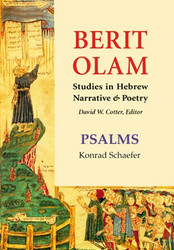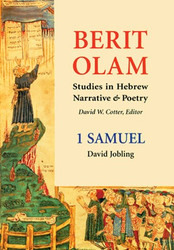What does Joshua hold to be the essential marks of Israelite identity? What distinguishes "Israel" from all other peoples? In tracking these themes, L. Daniel Hawk reveals in Joshua a profound struggle to define the people of the God of Israel.
Hawk shows that the themes surrounding Joshua express fundamental markers of national identity: religious practice (obedience to the commandments of Moses), ethnic separation (extermination of the peoples of Canaan), and possession of land ("the land that YHWH gives"). Through the medium of narrative, Joshua tests each of these markers and demonstrates that none clearly characterize the people of God. Instead, Joshua presents Israel as a nation fundamentally constituted by choosing: YHWH's choosing of Israel and Israel's choosing of YHWH.
In the present day in which ideologies of religion, race, and territorial possession have given rise to countless expressions of violence, Hawk expresses the particular value of reading Joshua. The Joshua story holds a mirror up to all who regard themselves as the people of God. The reflection is both repelling and inspiring but until we confront it, what it truly means to be the chosen people of God will remain elusive.
| Format: | Hardcover book |
|---|---|
| Product code: | LP5042 |
| Dimensions: | 6" x 9" |
| Length: | 336 pages |
| Publisher: |
Liturgical Press
|
| ISBN: | 9780814650424 |
| 1-2 copies | $70.35 each |
|---|---|
| 3-9 copies | $67.15 each |
| 10-49 copies | $63.96 each |
| 50-99 copies | $62.36 each |
| 100+ copies | $59.96 each |
Praise
In this provocative and instructive study, Hawk analyzes both the literary composition of the book of Joshua as well as the theological principles that such a composition conveys. In so doing, he carefully presents the book as a unified and intentionally designed whole rather than a random collection of otherwise independent stories. While the typical reader of Joshua might readily conclude that central to the book and to Israel's identity are ethnic purity, correct religious practice and the possession of the land, Hawk persuasively argues that the unifying theme in Joshua is actually that of decision-making. In tracing this theme through to its climax in Joshua 24, Hawk skillfully weds literary expertise with theological sophistication. All who read this work will not only gain a fresh understanding of the book of Joshua, but a new lens through which to view their own lives.
Terry L. Brensinger, Messiah College, Grantham, Pen
. . . a useful addition to the growing corpus of literary approaches to Scripture.
. . . at a time when issues of ethnicity are paramount in the discussion of the origins of Israel, Hawk's work promises to raise this discussion to new levels.
This work will be a valuable tool both for those who wish to engage in a close reading of the text of Joshua and for those who are looking for a primer in the art of close reading.
This is the best literary treatment of Joshua presently available. Its treasure-trove of stylistic insights and intertextual readings bring the Joshua's familiar narratives to life in fresh new ways. Even boring lists of cities and boundaries add their voice to the books chorus of themes. Though readers may question some of his readings, the authors exposition is clear and usually compelling. I highly recommend this book.
His commentary emphasizes the way in which the book constructs identity.
Hawk's commentary is masterfully written and can be read with great benefit as a significant contribution to the study of the Book of Joshua.
Hawk's scholarship is sound and his conclusions are presented in a clear manner.
It makes a positive contribution to the range of commentaries on this ancient text.
This reading discloses that the narrative of Joshua is one punctuated by choices.
Hawk continues to establish his reputation as one of the leading practitioners of literary analysis of Old Testament narrative.
Author
L. Daniel Hawk, Ph.D., is professor of Old Testament and Hebrew at Ashland Theological Seminary, Ashland, Ohio. He has also taught at Centenary College of Louisiana, Candler School of Theology, and Asbury College. A United Methodist minister with pastoral experience, he remains active in the life of the Church through preaching, teaching, and leadership in worship. He has also written Every Promise Fulfilled: Contesting Plots in Joshua (Westminster/John Know, 1991).









